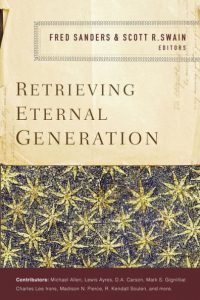On average, we publish around 150 book reviews a year at The Gospel Coalition. Ecclesiastes 12:12 rings true: “Of making many books there is no end.” It’s impossible to read, let alone review, each one. But in addition to our steady line of reviews, we want to highlight other books you should know about. This is our monthly installment of brief book notices from Fred Zaspel. You can check out more book notices, reviews, author interviews, and book summaries at Books At a Glance.
Theistic Evolution: A Scientific, Philosophical, and Theological Critique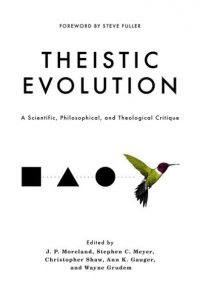

J. P. Moreland, Stephen C. Meyer, Christopher Shaw, Ann K. Gauger, Wayne Grudem (eds.)
Crossway, 2017
1,008 pages
This massive tome marks a new landmark in the creation-evolution debate, a powerful offensive against that would-be middle ground of “evolutionary creationism” (theistic evolution). This major accomplishment features the concerted efforts of well-qualified scholars from various fields presenting a sustained challenge on all fronts—scientific, philosophical, and theological. Just browse it for a moment, and you’ll know that this is the new “go to” book on the subject—an essential resource all sides will need to consider carefully.
Good Arguments: Making Your Case in Writing and Public Speaking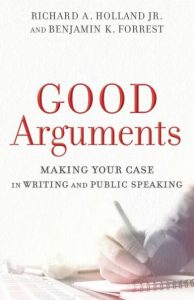

Richard A. Holland Jr. and Benjamin K. Forrest
Baker Academic, 2017
160 pages
What’s the point of writing and public speaking if we fail to make our case? Clear reasoning, avoiding logical fallacies, and persuasive argument are essential—“must” learning for everyone who handles the Word of God in public presentation—and I don’t know a simpler, better introductory guide than this new little book.
Why We’re Protestant: An Introduction to the Five Solas of the Reformation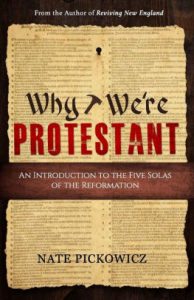

Nate Pickowicz
Entreating Favor, 2017
170 pages
This year’s celebration of the 500th anniversary of the Protestant Reformation gave us a wonderful excuse to emphasize those five important truths—the solas—that ought to be emphasized continuously. Pickowicz has provided a popular introduction to these biblical teachings in the context of the 16th-century Reformation. I love Reformation history, I love these five areas of theological emphasis, and I love it when it’s all made accessible to the Christian who is new to the study, as Pickowicz has done. Highly recommended—I hope it gets wide use.
Thinking through Creation: Genesis 1 and 2 as Tools of Cultural Critique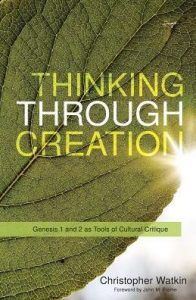

Christopher Watkin
P&R, 2017
192 pages
It’s ironic that Christians are sometimes embarrassed by the earliest chapters of Genesis when these chapters provide the only possible explanation for our world and culture. Like Cornelius Van Til and company, and yet with more contemporary analysis, Watkins wants not only to explain the Bible to our culture, but also to explain our culture through the Bible. He’s convinced that with a right understanding of our triune God and his creative work, we can do so with penetrating precision. A stimulating read indeed.
Fred Sanders and Scott Swain (eds.)
Zondervan, 2017
304 pages
The doctrine of the Trinity doesn’t assert simply that God is one in being and three in persons. It insists further that these three stand in distinct relation to one another. Specifically, in the words of the editors, “It is not enough to say that the Son is God; we must say that he is God the Son, not just God in general.” Fred Sanders, Scott Swain, and company want to give the doctrine of eternal generation—so prominent in trinitarian exposition in former centuries—a new hearing. And they want to demonstrate that the doctrine is both exegetically and theologically necessary.
This is now the book on the subject, so far as I can tell. All the chapters contribute in some important way, and several stand out so compellingly that they are worth the price of the book. Don Carson’s chapter on John 5:26 secures the doctrine exegetically, for example, and Lee Irons’s chapter on monogenes as “only begotten” (not “unique”) will certainly command a hearing and likely make considerable impact. [See Lee Irons’s popular-level argumentation in this TGC article.] For the study of this doctrine, this volume is without question a must-have.













